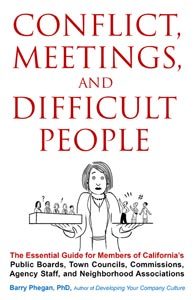 My recent Australian visit had me reflecting on our North American norms and how we staunchly defend, like every nation, our unique, though perfectly arbitrary ways and assumptions. While Australia is clearly part of our current international industrial/consumer culture, it has, like every country, its striking local variations.
My recent Australian visit had me reflecting on our North American norms and how we staunchly defend, like every nation, our unique, though perfectly arbitrary ways and assumptions. While Australia is clearly part of our current international industrial/consumer culture, it has, like every country, its striking local variations.
In her widely translated book, Patterns of Culture (Routledge, 1934), Ruth Fulton Benedict showed how each culture chooses from “the great arc of human potentialities” only a few characteristics which become the leading personality traits of the persons living in that culture.
Sydney Norms
One distinctive trait of Sydney is the many 20+ story residential towers dotting the Sydney Harbor shoreline and inland areas. Here in my home county of Marin that would mean clusters of 20-30 story towers on the Sausalito hillside, Tiburon peninsula, Larkspur Landing, and downtown San Rafael.

I can only imagine the uproar if such buildings were proposed here. But in Sydney they are the perfectly accepted norm, perhaps because they are often accompanied by thoughtfully conceived transportation and community facilities.
In the once sleepy suburb of Chatswood, where as a school child I would transfer from a bus to the train, there are now stunning clusters of high-rise residential towers accompanied by a 4-5 blocks pedestrian mall, a large artificial turfed communal area where mothers with toddlers sit and chat, faced by a library, art and theater center, city and other communal facilities. It’s an exciting vibrant town center, completely unlike anything I have seen in North America.
Being there reminded me of those feelings I’ve had when visiting Paris, Barcelona, Milan, or London. But Sydney today is not a historic preservation, it’s a here-and-now modern reality, in tune with today’s possibilities and needs. And I like it — very much.
Resisting Change
 In Roger and Hammerstein’s musical Oklahoma, set in 1906, the song The Farmer and the Cowman Should Be Friends, describes the cultural clash between what was and what will be. Clinging to their open-range history, the cowmen opposed fences. I guess the farmers in turn opposed tract housing, and now single-family residential owners oppose multifamily construction. Such is evolution and our endless longing for the past, both real and the misremembered.
In Roger and Hammerstein’s musical Oklahoma, set in 1906, the song The Farmer and the Cowman Should Be Friends, describes the cultural clash between what was and what will be. Clinging to their open-range history, the cowmen opposed fences. I guess the farmers in turn opposed tract housing, and now single-family residential owners oppose multifamily construction. Such is evolution and our endless longing for the past, both real and the misremembered.
Fear of and resistance to inevitable cultural evolution is tasty fodder for a dominant national pastime — arguing. As a US immigrant, I have necessarily come to accept that arguing, fighting, or simply opposing whenever and whatever, is one of our culture’s choices from “the great arc of human potentialities.”
Fed Up with Fighting
 But the older I become, the less tolerant I am of fighting. Not only have I lost my personal interest in arguing, but I understand how totally unnecessary it is at the interpersonal and national level. Except for the simple reality that it is culturally appropriate, and therefore assumed as necessary — “How could it be otherwise?” (We can add the biological reinforcement that fighting and domination is biologically driven in human males, as it is in most mammal species.)
But the older I become, the less tolerant I am of fighting. Not only have I lost my personal interest in arguing, but I understand how totally unnecessary it is at the interpersonal and national level. Except for the simple reality that it is culturally appropriate, and therefore assumed as necessary — “How could it be otherwise?” (We can add the biological reinforcement that fighting and domination is biologically driven in human males, as it is in most mammal species.)
Well, I’m tired of arguing, particularly the current destructive tribal battles of national politics. I’m not participating politically this year, even as democracy itself is threatened. I’m simply fed up. Withdrawing from the field of battle brings me more peace and less stress. It feels good and I would wish it on you.
So that’s what I brought home from Australia, along with a kangaroo T-shirt for my grandson, the long-distance runner.
Thank you for reading.
Barry
Add Your Name below to my list to know when I have posted a new blog.




